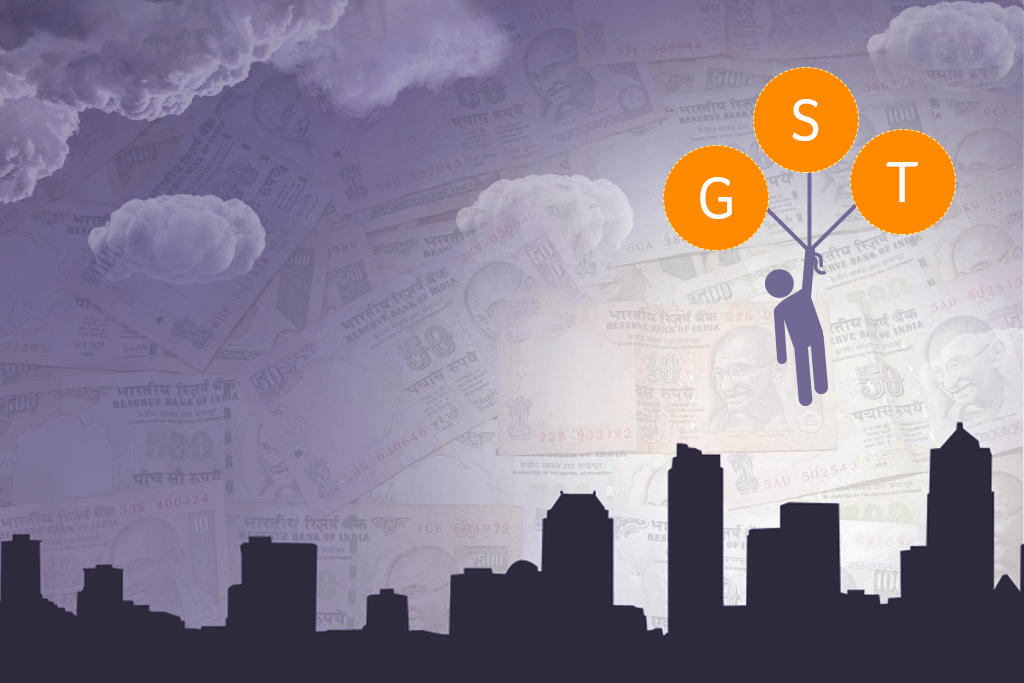As the BJP has lost elections in three Hindi heartland states, it would have its ramifications on the functioning of GST council. The Congress party has opposed the GST structure implemented by the Modi government and has demanded a single rate in the GST. The newly appointed chief minister of Madhya Pradesh Kamal Nath has said, “We will campaign against the kind of GST he (Prime Minister) has brought in.” GST council functions on federal cooperation with 33.3 percent of the voting rights reserved to the central government and 66.6 percent to the states. The state’s share is equally distributed between 29 states and two union territories (Delhi and Puducherry). So every state’s share comes out to be 2.15 percent vote in the GST Council.
So far, all the resolutions of GST council have been passed by consensus and no voting has yet taken place. For a resolution to be passed, at least 75 percent of the votes are needed. So BJP needs support from finance ministers of at least 20 states to get a resolution passed while the opposition needs the support of 12 states to get any resolution blocked. As of now, BJP rules 13 states and North-East Democratic States (NEDA) has governments in 4 states. NEDA alliance partner Mizo National Front (MNF) won in the recent assembly election in Mizoram and hence, National Democratic Alliance’s total tally reaches to 18. So to get a resolution passed, BJP will need support from finance ministers of any of two non-BJP states i.e. West Bengal, Andhra Pradesh, Kerala, Tamil Nadu, Odisha, Telangana, and Delhi.
On the other hand, to get a resolution blocked, Congress will need the support of any 6 states. Of these seven states, Congress could bank upon West Bengal, Andhra Pradesh, Kerala, and Delhi. So it will need to bring any two of Tamil Nadu, Telangana, and Odisha to get any resolution blocked. According to sources, the finance ministers of the states ruled by the Congress party will hold a meeting before December 22 to sketch out the strategy. The market experts expect the political parties to work in a cooperative manner with no politicization of GST. “With new faces in GST council, there could be new ideas and thoughts. The bigger question remains how the political parties will work together to provide the much-needed relief for the business community,” said Abhishek Rastogi, partner at Khaitan & Co.
In the next council meet, the issue of further rationalization of the highest slab of GST in which 35 items are put can be considered. Modi government has operated GST on a feedback based mechanism and has pushed for much-needed reforms as per the demands of the business community and needs of the government. The process has worked smoothly so far but as Congress has gained more bargaining power, only upcoming days could tell what lies ahead. Congress party wanted to implement a single rate GST for the simplification purpose but that structure failed miserably in many countries. The Malaysian government had to scrap GST altogether given the problems with single rate structure. This is common logic that slippers and luxury cars can’t be taxed at the same rate.
Modi government has introduced multiple slab structure to solve this problem. GST had been in pipeline for last three decades but could not be implemented due to the lack of consensus among states. Modi government addressed the issues of all stakeholders and implemented the much-needed reform. Now people expect Congress to behave in a responsible manner and not create a blockage in the smooth functioning of GST.
